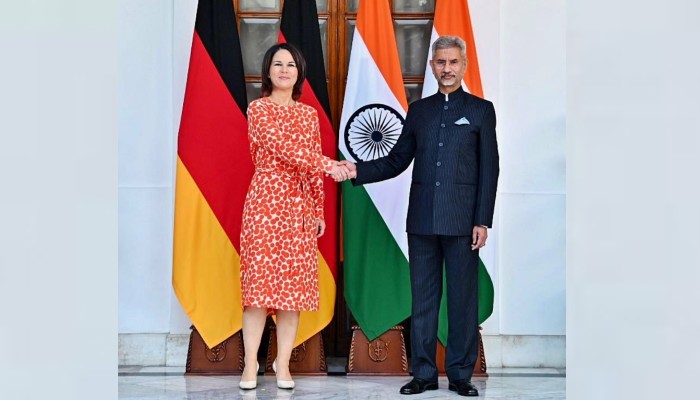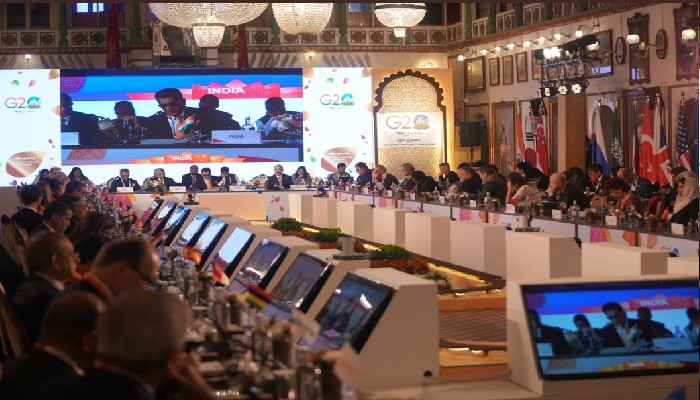PM Modi also spoke about the need to ensure adequate supply chains for food and fertilisers
Maintaining that India's energy security was important for global growth, Prime Minister Narendra Modi on Tuesday made a strong pitch against restrictions on the supply of energy.
Addressing the Bali G20 Summit in the backdrop of the continuing conflict in Ukraine, Prime Minister Modi said that stability in the energy market should be ensured.
“India’s energy security is also important for global growth, as it is the world’s fastest-growing economy. We must not promote any restrictions on the supply of energy and stability in the energy market should be ensured,” PM Modi said in his address during 'Session I: Food and Energy Security'.
India has faced criticism from some Western nations for its decision to purchase Russian oil after Moscow’s invasion of Ukraine in February this year. India has, however, strongly defended it's decision to do so, saying it has to look after its national interest first.
At the G20 Summit, Prime Minister also reiterated his call for dialogue and diplomacy to resolve the Ukraine conflict.
"I have repeatedly said that we have to find a way to return to the path of ceasefire and diplomacy in Ukraine. Over the past century, the Second World War wreaked havoc in the world. After that, the leaders of that time made a serious effort to take the path of peace. Now it's our turn," the Prime Minister pointed out.
"The onus of creating a new world order for the post-Covid period lies on our shoulders. The need of the hour is to show concrete and collective resolve to ensure peace, harmony and security in the world," he added.
Prime Minister Modi expressed the hope that when the G20 meets in the holy land of Buddha and Gandhi next year, "we will all agree to convey a strong message of peace to the world'.
India will assume the G20 Presidency from December 1 this year.
'GLOBAL SUPPLY CHAINS ARE IN RUINS'
Prime Minister Modi also spoke about the need to ensure adequate supply chains as far as food and fertilisers are concerned.
Climate change, the Covid pandemic, and the developments in Ukraine had caused "havoc" in the world, he said.
"Global supply chains are in ruins. There is a crisis of essentials, essential goods all over the world. The challenge for the poor citizens of every country is more severe. Everyday life was already a struggle for them. They do not have the financial capacity to deal with the double whammy," he noted.
Multilateral institutions such as the UN have been unsuccessful on these issues, PM Modi went on to say, adding that suitable reforms had not been carried out. "Therefore, today the world has greater expectations from the G-20, the relevance of our group has become more significant," he remarked.
He pointed out that during the Covid-19 pandemic, India ensured food security of its 1.3 billion citizens. At the same time, food grains were also supplied to many countries in need, he said.
According to Prime Minister Modi, the current shortage of fertilizers in terms of food security is a huge crisis. "Today's fertilizer shortage is tomorrow's food crisis, for which the world will not have a solution. We should build mutual agreement to maintain the supply chain of both manure and food grains stable and assured," he said.
During his address, he also emphasized that India is committed to clean energy and environment.
"By 2030, half of our electricity will be generated from renewable sources. Time-bound and affordable finance and sustainable supply of technology to developing countries is essential for inclusive energy transition," Prime Minister Modi stated.
 Contact Us
Contact Us  Subscribe Us
Subscribe Us









 Contact Us
Contact Us
 Subscribe
Subscribe
 News Letter
News Letter

